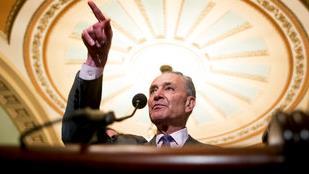Trump freezes Affordable Care Act payments
Once again, the Trump administration has taken an axe to the Affordable Care Act, temporarily suspending a program that was set to pay out $10.4 billion to insurers for covering high-risk individuals last year.
Health insurers say it is a move that could drive up premium costs and create marketplace uncertainty.
Insurance stocks may be a focus in Monday morning’s trading.
The Affordable Care Act's (ACA) "risk adjustment" program is intended to incentivize health insurers to cover individuals with pre-existing and chronic conditions by collecting money from insurers with relatively healthy enrollees to offset the costs of other insurers with sicker ones, according to Reuters.
President Donald Trump's administration has used its regulatory powers to undermine the ACA on multiple fronts after the Republican-controlled Congress last year failed to repeal and replace the law propelled by Democratic President Barack Obama.
Many Trump followers often cheer cuts to Obamacare, not knowing that the Affordable Care Act and Obamacare are one in the same.
About 20 million Americans have received health insurance coverage through the program.
It could encourage more insurers to bow out of the Affordable Care Act.
Months-old conflicting court rulings related to the risk adjustment formula are preventing the Centers for Medicare and Medicaid Services (CMS) from making payments.
A February ruling from a federal court in New Mexico invalidated the risk adjustment formula, and a January ruling from a federal court in Massachusetts upheld it.
The administration has made several other moves in recent years to scale back or halt implementation of certain aspects of the ACA, without replacing it with a better health plan, which was a Trump campaign promise.
Late last year, it said it would halt so-called cost-sharing payments, which offset some out-of-pocket healthcare costs for low-income patients.
The advertising budget for Obamacare healthcare plans during the open-enrollment period was slashed by about 90 percent.




















